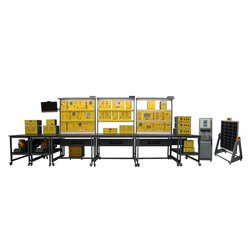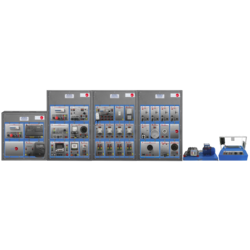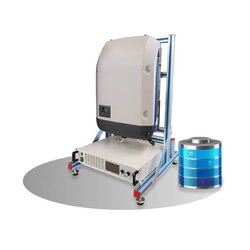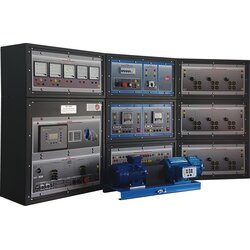Smart Grid (DL-SGWD)
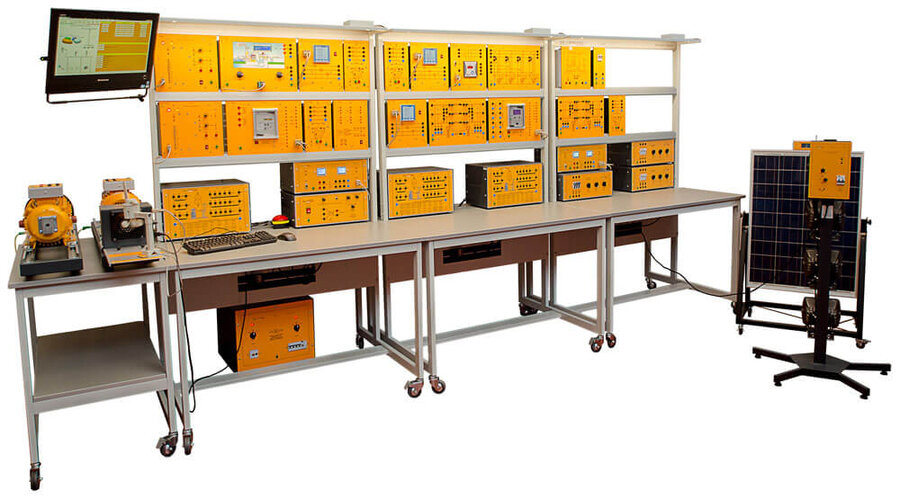

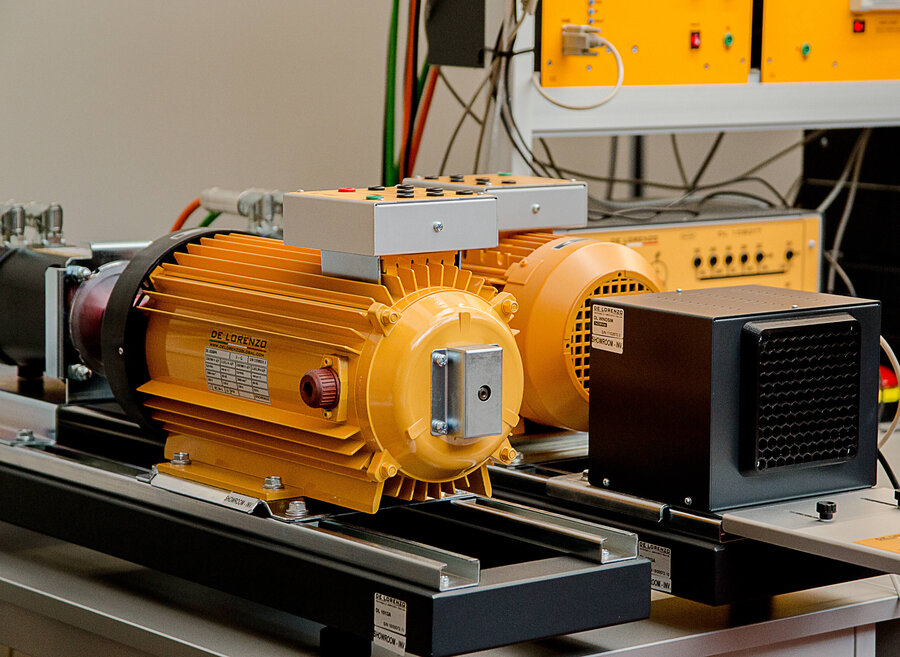
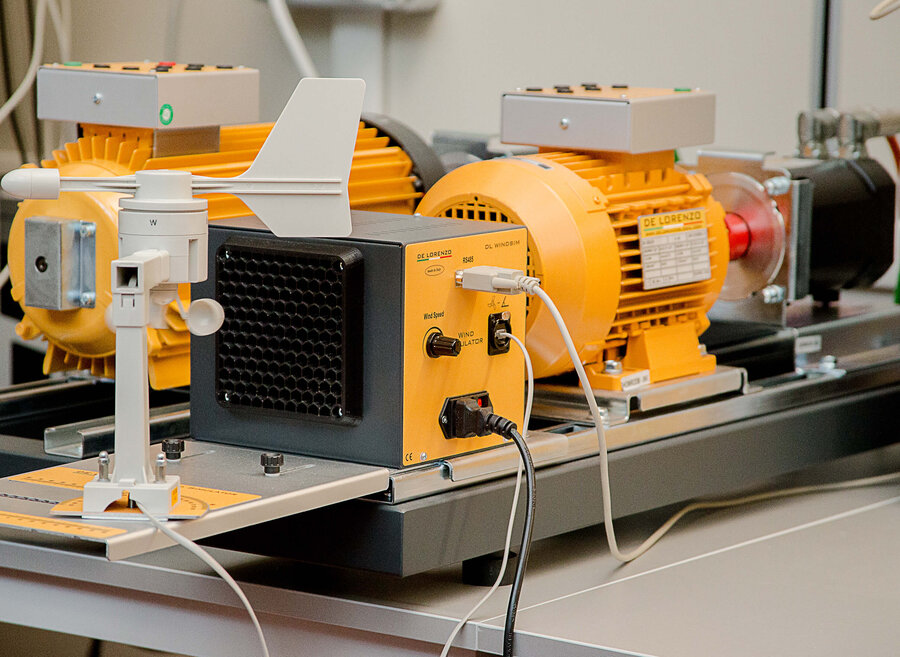
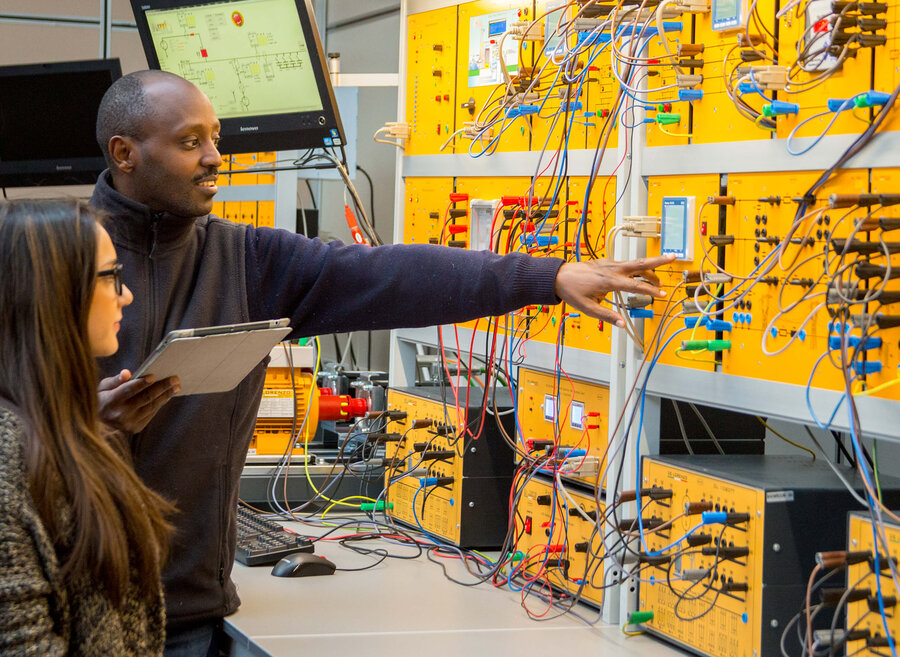
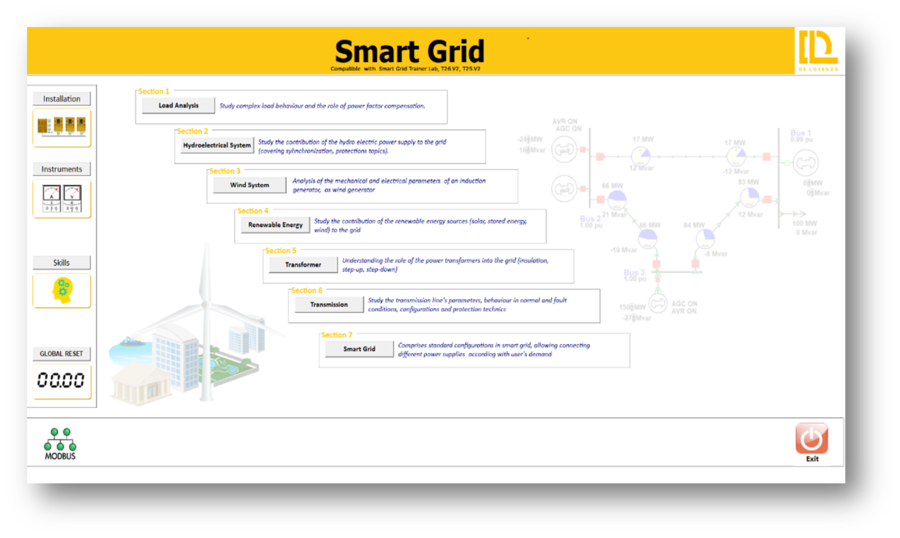
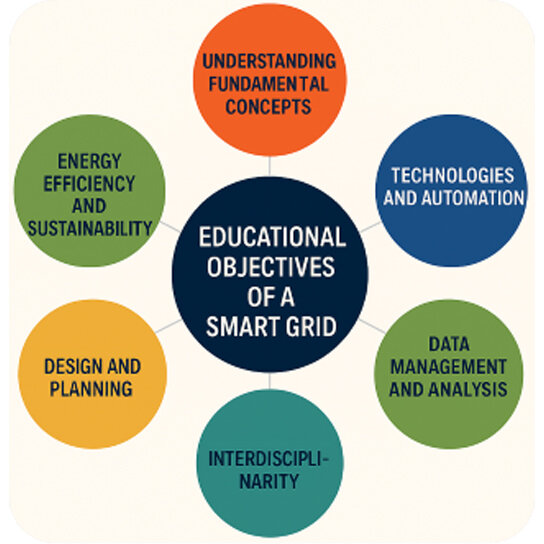
PL-577995
Since the early 21st century, opportunities to take advantage of improvements in electronic communication technology to resolve the limitations and costs of the electrical grid have become apparent.
Technological limitations on metering no longer force peak power prices to be averaged out and passed on to all consumers equally.
In parallel, growing concerns over environmental damage from fossil fuel-fired power stations have led to a desire to use large amounts of renewable energy.
Dominant forms such as wind power and solar power are highly variable, and so the need for more sophisticated control systems became apparent, to facilitate the connection of sources to the otherwise highly controllable grid. Power from photovoltaic cells (and to a lesser extent wind turbines) has also, significantly, called into question the imperative for large, centralized power stations.
The rapidly falling costs point to a major change from the centralized grid topology to one that is highly distributed, with power being both generated and consumed right at the limits of the grid.
Finally, growing concern over terrorist attack in some countries has led to calls for a more robust energy grid that is less dependent on centralised power stations that were perceived to be potential attack targets.
WHAT IS A SMART GRID?
The Smart Grid is a system for an "intelligent distribution" of electricity, able to know the consumption of the various end users and to manage the generation and distribution of electricity according to demand.
Simply put, if in each area we have a potential overload of energy, the excess energy can be redistributed to other areas that need it, based on the actual requests from end users.
Furthermore, the software that runs the Smart Grid monitors the electrical flow of the system, integrates renewable energy into the network and activates / suspends the industrial or domestic processes during periods when electricity costs less / more.
The smart grid knows our requirement of power consumption. When the demand for electricity is at its maximum, the smart grid automatically adapts to the demand by picking up excess energy from many sources to avoid overload problems or interruptions of power.
It has, therefore, the function of sharing the electricity that is generated from various sources, both public and private, traditional and renewable, and ensuring that electrical devices use electricity as efficiently as possible.
WHAT IS A SCADA SOFTWARE?
The SCADA (Supervisory Control And Data Acquisition) is an industrial control system that performs the following functions:
SCADA systems supervise, control, optimize and manage the systems for the generation and transmission of electrical energy as well as the distribution networks. They allow to collect, store and analyse data from hundreds of thousands of data points in national or regional networks, to model networks, to simulate operations, highlight faults, prevent them and finally participate in the energy markets.
They are a vital part of modern networks and enable the development of the smart grids that must handle enormous amounts of energy from renewable sources produced by generators of large and small scale, to maintain stability in the network despite the intermittency of these sources and the bidirectionality of the energy flow.
The different sections of the educational system communicate via Ethernet and dedicated RS485 serial buses using a standard industrial communication protocol such as MODBUS RTU.
DE LORENZO SOLUTION The smart grid system developed by De Lorenzo can be organized in eight subsystems, each comprised of several modules. The first four subsystems are simulations of energy sources; the first one is the main power supply of the grid with a three-phase supply unit that represents a coal plant.
The other three subsystems correspond to alternative sources of energy: wind, hydroelectric and solar. The wind plant simulation is made with a three-phase induction motor acting as a generator while the hydroelectric plant simulation is made with a three-phase synchronous machine, additionally with a generator synchronizing relay module to make possible the connection to the grid. Finally, the solar energy part of the system is generated with a solar panel and four dimmable lamps simulating the sun, which is connected to an inverter module that allows the energy generated to be transferred to the grid.
A fifth subsystem in the smart grid consists of modules for fault protection; the modules are a feeder manager relay that measures in real time voltages and currents to detect faults in the grid and four power circuit breakers controlled by the previous module to disconnect faulty lines.
The sixth subsystem refers to modules for measuring; it has three maximum demand meters that measure AC voltages, currents, frequencies, active power, reactive power, apparent power, power factor and THD for each of the three available phases in the grid and two electrical power digital measuring units that, besides measuring the same as the previous module, make measurements of DC voltage, current, power and energy.
The seventh subsystem is for power factor control with 2 modules, the first one is a switchable capacitor battery with four different values of capacitors, and the second one is a reactive power controller that activates the capacitors of the previous module to make a power factor correction.
The last subsystem is composed of passive elements; three modules with different kind of loads (capacitive, inductive, resistive) that simulate the loads in a house or factory and two modules with impedances simulating the losses generated in transmission lines, specifically in lines of 10 and 100 km length.
A SCADA software provides to the acquisition and storage of the data coming from the measurement instruments and to the control of the actuators for an “intelligent” management of the whole electrical system. The SCADA software can also be supplied on request in an OPEN version, so that the teacher can implement his own project and select modes and procedure for visualizing the parameters and controlling the actuators.
The system described above represents the basic configuration of our laboratory (DL SGWD).
Optionally, it is also possible to add an additional wind energy small scale generation system, with a real wind turbine connected to an inverter module to make possible the connection to the grid.
THE EDUCATIONAL OBJECTIVES The Smart Grid trainer can be considered a multidisciplinary laboratory, because it allows studying and exercising different technical subjects, that are then integrated into a full Smart Grid system setup.
Actually, the Smart Grid trainer is an integrated laboratory that can be useful for a huge number of undergraduate and graduate courses in the engineering school. The laboratory equipment can be configured to create different exercises, which reinforce basic and advanced concepts in electric energy. The equipment can be interconnected to form a full smart grid system. However, as you can see from the list of experiments in the next paragraph, conventional topics, such as electric machines, distribution systems and so on could be covered by the Smart Grid trainer; this innovative laboratory can include class demonstrations and laboratory experiments under regular laboratory classes. There are fundamental topics that are needed for understanding the smart grid concept and they must relate to real life situations, yet a set of different topics could be added to get a special curricula. The core topics include electric circuits, electric machinery, hydroelectricity, wind energy, photovoltaic solar energy, renewable energies, power transmission, power distribution.
Furthermore, additional courses can benefit from the smart grid trainer, such as, for example: power system engineering & analysis, electric machines, linear control systems, electrical distribution engineering and smart grids automation, power generation operation and control, power electronics, cost and construction of electrical supply, power system stability, optimization methods, stochastic processes, embedded systems.
The smart grid system can be used by mechanical and electrical engineering students as a longtime project as it comprises enough elements to cover most of the topics listed above. Electric circuits’ particular subjects can be studied through load modules, enabling the full understanding of resistive, capacitive and inductive loads, fed by AC or DC supply. Protected equipment permits the application of domestic and industrial rated electric magnitudes as well as their instrumentation. Effects of inductive loads and power factor correction are issues which can also be addressed.
The study of AC electric machinery can also be complemented with the practical insight provided by the induction and synchronous generators used to emulate a wind and a hydro-electrical power plant respectively.
Synchronization methods, power and instrumentation transformers, and the inner physical phenomena can be measured and studied as individual elements or as part of the whole power distribution system.
The entire system can be tested under many considerations as it is configurable, so different experiments can be driven based on the same principles. When analyzing distribution systems and fault schemes, the instrumentation and logical equipment can provide enough flexibility to understand the process between power generation and usage, together with abnormal events and their respective protective relaying issues. In this way, the topics added in the curricula which regard power management and distribution can also find room in the integrated smart grid project, which can be also evaluated under efficiency concerns depending on load conditions or generators’ states.
In this way, the smart grid as a set of individual modules or as a whole, enables the student to move towards a single objective necessarily going through each individual area, making possible the full understanding of smart grid theory, application, and capabilities, as well as the concerning steps of its integration. The Smart Grid trainer also allows us to understand advanced topics like energy production in wind plants that are connected to the main electric grid, or they can be isolated as micro-grids, so the students can comprehend real problems in engineering which are imperative in the energy progress; thus, the basic and advanced courses can be combined in the wind turbine system. For example, wind generators include a pitch controller that increases energy efficiency and the energy generated is sent to the central electric grid; hence, the students must use several topics such as control systems, digital control, electric machines, and so on.
As an additional example, a combination of 3 energy sources can be studied when they are providing energy to the load. If the conventional source is combined with wind and hydro energy, the student will be able to understand in a clear manner the process of providing energy to the load by alternative energy. Moreover, environmental questions can be included in the exercise (carbon footprint).
The number of exercises and topics can be expanded, and the student is able to propose novel ideas about how to solve problems that affect society; hence, the motivation of student can be increased.
In conclusion, engineering courses need to cover experimental concepts that increase the engineering knowledge of students, but it is not easy to find experimental systems that allow them to combine those concepts.
Although Smart Grid is a quite complex problem that is impacting electrical energy, it could be used for leaning basic concepts like electric circuits; hence, this system includes all the elements for providing real experience in the mechanical and electrical engineering curricula and impact the advanced and basic topics in the curricula. Smart Grid is a perfect system for teaching and involving students in experimental engineering problems. Besides, the student can deal with ecological and economic problems. The experimental use of solar and wind energy provides information about how the alternative sources of electrical energy can be used in large and low scale.
Our proposal includes exercises with the Smart Grid in different topics; thus, this system is the conductor for connecting theoretical and practical concepts.
LIST OF EXPERIMENTS
SECTION 1: LOAD ANALYSIS
SECTION 2: HYDROELECTRIC SYSTEM
SECTION 3: WIND SYSTEM
SECTION 4: RENEWABLE ENERGY MICROGRID
SECTION 5: TRANSFORMERS
SECTION 6: TRANSMISSION
SECTION 7: SMART GRID
MANUALS AND EXAMPLE OF AN EXPERIMENT
The system includes a comprehensive manual of experiments with a detailed description including the theory, procedure, and objectives for each of the 46 experiments.
Additionally, the system comes with a 300-page English-language book, “EXPERIMENTAL CONCEPTS OF SMART GRID TECHNOLOGY BASED ON DE LORENZO SMART GRID,” written by Professors Pedro Ponce and Arturo Molina of the Monterrey Institute of Technology (Mexico).
EXPERIMENT (extract from Section 2) AUTOMATIC GENERATOR SYNCHRONIZATION
This experiment provides insight into a frequently performed operation in power grids. It is very important to synchronize a generator before placing it in parallel with another generator, as this ensures quality, reliability, and optimal performance within the system.
THE LIST OF MODULES of “DL SGWD” VERSION:
What is this?
These percentage scores are an average of 0 user reviews. To get more into detail, see each review and comments as per below
If you have used this product, support the community by submitting your review
